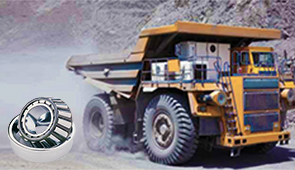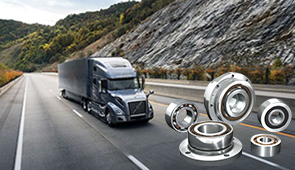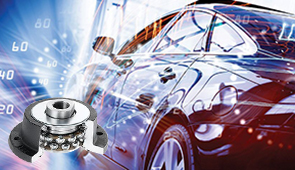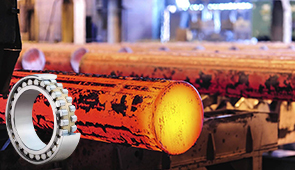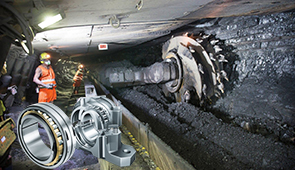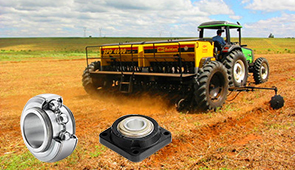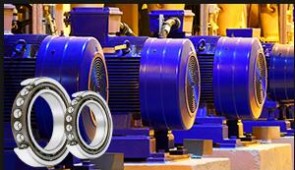How long will noisy wheel bearing last?
A noisy wheel bearing is a sign that the bearings need to be replaced. If you hear a clicking sound when turning your steering wheel, this may indicate a bad bearing. If the noise gets worse over time, it’s a sign that the bearings are failing and need to be replaced soon. If you hear a grinding or squealing noise from your steering wheel, it could mean that the hub assembly needs to be replaced or repaired.
A noisy wheel bearing is caused by worn out parts inside the hub assembly. The bearings are made up of small metal balls that roll around inside their housing as you turn your wheels. The balls keep the axle aligned with the shaft and allow for smooth operation of the suspension system. Over time, these parts can wear out from use and require replacement if they continue to make noise when moving them back and forth manually on their shafts with your hands in order to see if this is indeed the problem with your car or truck’s steering system before taking it into an auto repair shop.
The duration of noisy wheel bearings is difficult to estimate.
This is because the noise is caused by several factors, including the condition and type of bearing, the size and design of the wheel, and how it is used.
The most common cause of noisy wheel bearings is worn or damaged bearings. The extent of damage can vary widely based on the type of bearing and its use. For example, grease-lubricated roller bearings are more likely to be damaged by moisture than oil-lubricated ball bearings.
Another common cause of noisy wheel bearings is excessive play in the bearing itself or in its housing. When there is too much play, vibrations tend to occur at higher speeds (and for longer periods). If this occurs with a high frequency (e.g., when driving over bumps), then a rattling sound may result from vibration of parts within the housing or from contact between elements within the housing itself.
The length of the duration depends on a variety of factors.
The duration of a noisy wheel bearing depends on a variety of factors. It is possible for the noise to last for months, but it is also possible for the noise to disappear in minutes.
Here are some of the factors that can affect how long a noisy wheel bearing lasts:
The severity of the noise. A loud screech or grinding sound may indicate that the bearings are failing and will need to be replaced as soon as possible. On the other hand, a small rattle may go away after a few miles or hours. If your car has been making a constant noise for more than two months and you haven’t had any problems driving it, it’s probably safe to assume that it’s not urgent.
The type of vehicle you drive. Smaller cars tend to have smaller wheels with less clearance than larger vehicles, so they’re more likely to develop problems with their bearings earlier than larger vehicles. Larger cars also tend to have stiffer suspension systems with less play in their components, which makes them less susceptible to wear and tear from rough roads or large potholes compared to smaller cars.
It is not safe to drive a vehicle with damaged wheel bearings.
Wheel bearings are an integral part of your vehicle’s suspension system, and they have a lot of moving parts. They are responsible for supporting the weight of your vehicle while it is in motion, and they also help reduce friction by allowing wheels to rotate freely.
If the wheel bearings on your vehicle become damaged or worn out, you may notice a rattling noise when you drive. This is caused by the wheel hub rotating around the brake drum where there is no lubrication between the two pieces. It can also cause other problems such as premature tire wear, steering problems and alignment issues.
If you notice a rattling noise while driving or if you feel any kind of vibrations coming from your wheels, it is best to have them checked by an experienced mechanic as soon as possible. The sooner you get them repaired, the less likely it will be that you will experience more serious problems down the road due to poor performance from these components.
The bearings should be replaced with new ones as soon as possible.
Bearings are essential to the operation of a vehicle. They provide the friction that keeps moving parts moving smoothly and quietly. In many cases, they are hidden from view and can go unnoticed until they fail, but when they do, it’s time to replace them with new ones.
The first sign of trouble is when a bearing starts to make noise, like a squeak or rattling. When you hear these sounds, stop the vehicle and check for damage or debris in the bearing. If there is nothing there, then continue driving but expect more noises to come later on in your trip. If there is something stuck inside the bearing, then stop driving and look for a safe place to pull over and remove it by hand.
Wheel bearings can extend the life of your car.
The wheel bearings on your vehicle are one of the most important parts of your suspension system. They allow you to steer, accelerate and brake smoothly. Without them, it would be impossible for you to drive your car safely.
Wheel bearings have metal rings that allow the wheels to turn freely inside the hub. The metal rings are held in place by a retainer and often by ball bearings as well. When these parts fail due to wear and tear, it can cause a loud grinding noise when you turn or brake. This is called “bearing knock.” If not repaired quickly, this problem could lead to serious damage to other parts of your car’s suspension system and even damage your tires!
Regular maintenance can prevent premature wheel bearing damage.
The steering and suspension on your vehicle are designed to work together to provide a comfortable ride and precise handling. The steering system consists of the steering gear, steering column, steering gear mounting brackets, steering knuckle and ball joints. The suspension system consists of the shock absorbers (struts), springs, stabilizer bar and bushings. Many of these components are located in the lower control arm or knuckle assembly.
In order to keep your vehicle in good working order, it is necessary for you to know how to check the condition of these systems periodically.
A number of different factors can cause premature wear on wheel bearings or drum brakes, including driving habits like hard braking or accelerating from a stop quickly, road conditions such as potholes or debris on the road, poor alignment or worn tires.
Noisy or rough riding wheels are usually caused by failing wheel bearings. once a bearing has worn to the point where audible noises are present, it will continue to wear and will eventually cause a seizure in the wheel shaft itself. At that point, the entire hub assembly must be replaced on most vehicles. The average lifespan of a bearing is dependent upon the vehicle application and how it is maintained.
UCTH213-40J-300 with Setscrew(inch)
CNSORDERNO: Normal-duty(2)
TOGN: UCTH213-40J-300
SDI: B-R1/8
SD: 2 1/2
UCTH212-39J-300 with Setscrew(inch)
CNSORDERNO: Normal-duty(2)
TOGN: UCTH212-39J-300
SDI: B-R1/8
SD: 2 7/16
UCTH212-38J-300 with Setscrew(inch)
CNSORDERNO: Normal-duty(2)
TOGN: UCTH212-38J-300
SDI: B-R1/8
SD: 2 3/8
UCTH212-36J-300 with Setscrew(inch)
CNSORDERNO: Normal-duty(2)
TOGN: UCTH212-36J-300
SDI: B-R1/8
SD: 2 1/4
UCTH211-35J-300 with Setscrew(inch)
CNSORDERNO: Normal-duty(2)
TOGN: UCTH211-35J-300
SDI: B-R1/8
SD: 2 3/16
UCTH211-34J-300 with Setscrew(inch)
CNSORDERNO: Normal-duty(2)
TOGN: UCTH211-34J-300
SDI: B-R1/8
SD: 2 1/8









